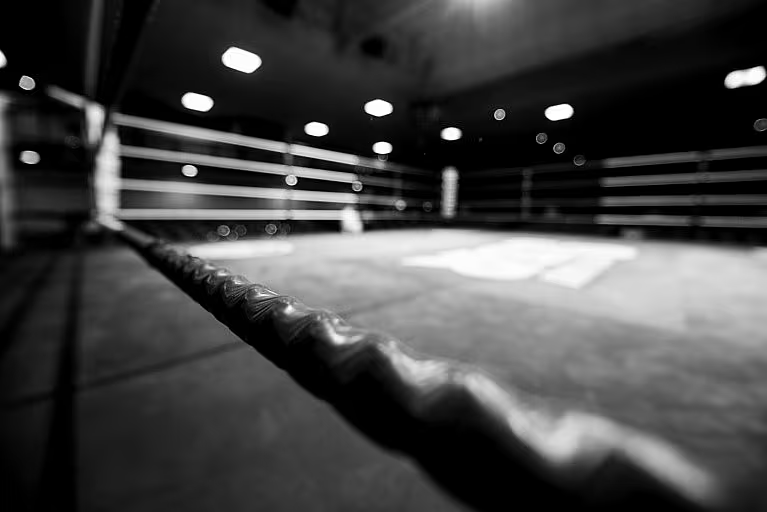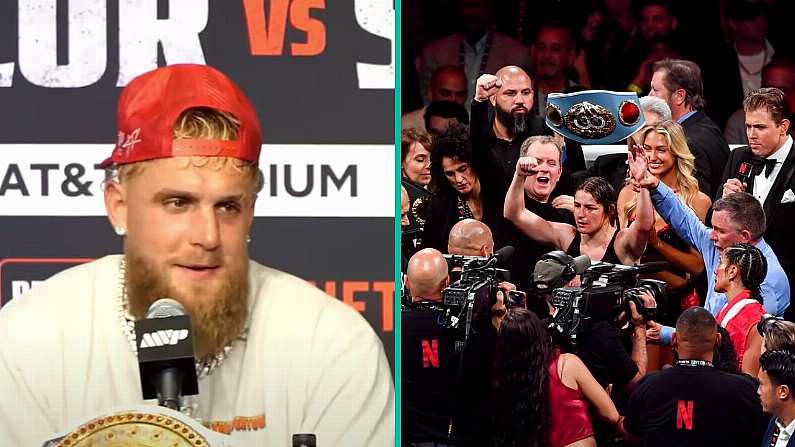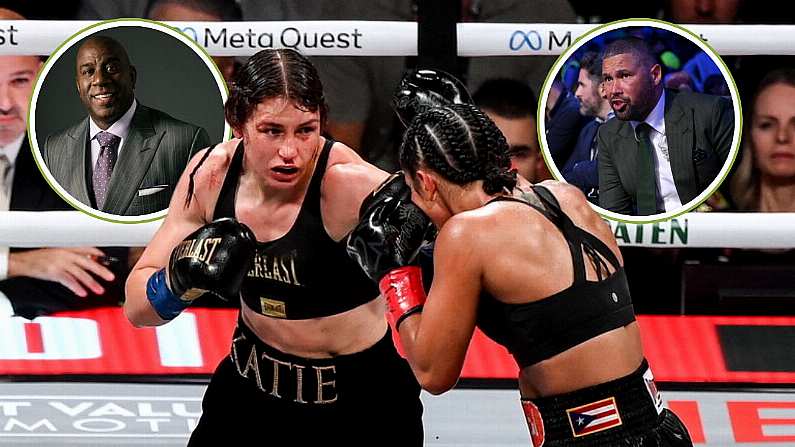The 1980s in the heartland of Galway's Gaeltacht was an overwhelmingly uninspiring epoch. Prolonged recession devastated rural Ireland as it was ransacked by poverty and emigration. However, for the children of Rosmuc, there was a constant source of inspiration in the exploits of American-based Irish boxer, Sean Mannion.
Mannion’s prowess is reflected in the immense regard which he is held in amongst boxing royalty.
Kevin McBride: “This man is a fucking legend.”
Angelo Dundee: “If only I had gotten him when he was 20 instead of 30. He’d have been a champion, no question about it.”
Marvin Hagler: “My man. A very tough kid.”
Micky Ward: “To be in the mix with the likes of Hagler, Hearns, Leonard. That tells you how good he was.”
Rónán Mac Con Iomaire was one of those Connemara children who idolised the Irish boxer. It was a persistent source of pride that a man who left the west of Ireland for Boston in his teens was fighting at the highest level on a global stage.

Mannion’s remarkable story has been documented in Mac Con Iomaire’s new book, The Man Who Was Never Knocked Down. It charts the Irishman’s extraordinary rise to the upper echelon of the US paid game. Mannion was once highest ranked middleweight in America.
His rejection of a $25,000 sponsorship fee because he wanted ‘Rosmuc’ on his shorts instead, his dealings with Whitey Bulger, his refusal to meet Ronald Reagan because the US president denied Sinn Fein’s Gerry Adams a visa. It’s all expertly documented and recounted. As Rónán explains, a process that was made significantly easier thanks to Mannion’s reputation stateside.
Even with the mobsters, I found the same regular thing speaking to them when I was working on the book. They would all be very reluctant until they would hear you are doing something on Sean. The reaction straightaway, and this is not an exaggeration, was amazing. Even Micky Ward, for example, was hesitant at the start but then it was ‘oh it is for Sean, I would do anything for Sean!”
First up, they would look at you suspiciously, but when they heard it was for Sean Mannion, different story. That is a reflection of the regard in which he is held in the US boxing scene.
The precarious status of boxing currently is a far cry from the limelight it commanded during Mannion’s era. Four kings roamed the globe at the middleweight division and Irish children had the opportunity to revel in that. That’s no longer the case, as pay-per-view priorities and promoters greed has conspired to weaken the sport’s standing.
“As a kid growing up in Connemara, I was boxing until the club there closed. At that time, growing up you had Marvin Hagler and Roberto Duran who were heroes because boxing was accessible. You could see it on TV. Now there is pay-per-view, you have to wait until 2am in the morning and pay 40 dollars to see something in Las Vegas.
“A kid now has way less opportunity to see boxing. At that time, it was glamorous and huge.”
We're delighted to announce our longlist of 23 books for the 2018 eir sport Book of the Year. #ESBOTY2018 pic.twitter.com/2aSLFqF6E5
— eir Sport (@eirSport) November 8, 2018
Mac Con Iomaire’s effort is just one of several outstanding boxing books to emerge this year. There are two others on the eir sports Book of the Year longlist. There is a brutal reality in boxing that lends itself to powerful sports writing. The entire sport is effectively a striking metaphor for the trials and tribulations of life. Often it boils down to the tale of a fight, inside and outside of the ring.
“More than any other genre in sport and in biographies, the amount of incredible boxing books I have read over the years is striking,” he explains from his Connemara home. “I think there is the fight in the ring. You usually don’t end up in a boxing ring if you are coming from a middle class or well to do background."
"Maybe it coincided with that golden age of American sports writing, in the 60s. You had that heavyweight boxing era and that era of writing. They combined and created something out of which since there has been a real consistency."
Despite his impressive excursions in Massachusetts and Atlantic City, Mannion never commanded the attention his ability deserved back in Ireland. The book is a fine addition to the recent Rocky Ros Muc documentary, an Irish-language production which was longlisted for an Oscar.
The high-point was a world light middleweight title fight against Mike ‘The Bodysnatcher’ McCallum at Madison Square Garden in 1984. Unfortunately, it ended in defeat. Mannion was raw having been unable to spar in the build-up to the fight due to a nasty eye injury. That defeat combined with a subsequent loss against Englishman Errol Christie in England was a bitter pill for the proud Galway man to swallow.

The sense of disappointment paled in comparison to the sense of shame. Sean Mannion was proud to represent the Fighting Irish on the world stage, he once famously interrupted a press conference and slammed his passport on the table when he was wrongly identified as an American-Irish boxer.
The book was a welcome chance to tackle the demons in his head and slowly but surely, he came to terms with the inaccurate idea that he let his country down. It is set for further exposure after the film rights were recently purchased by a Los Angeles film company, but that quest for recognition starts in Ireland.
It is interesting, the notion of Sean Mannion being recognised at home versus Sean Mannion being recognised in the US. Part of the reason I wanted to write the book was that I didn't realise how much Sean achieved really.
In Ireland, outside of a small hardcore boxing scene, his career was defined by the McCallum fight when he got the crap beaten out of him. This idea, 'somehow he got a lucky break', this is a perception I still hear to this day.
But when I went to Boston to research the book, I went to the Boston Gardens. There was a big pro boxing night there for the first time in five years. Sean was sitting ringside and there was this constant group of people going up to shake his hand. I'd met Sean back in Ireland and he had no profile. I was asking him 'who is this?' And he would say 'oh, a former manager of such and such', all world title people or former Whitey Bulger henchmen. They were the people in the queue. He was a big deal over there.
In the end, Mac Con Iomaire is just glad to be able to tell one more Irish emigrant's story.
"There is the classic Gaeltacht conspiracy theory that no one gives a fuck about the small man back in the Gaeltacht, I don’t necessarily know if that is true. I don’t know what it is. Sean was essentially an Irish boxer in America. Almost an American boxer, he left home at 17 like everyone else in Rosmuc, so nobody outside of there was aware of his story."
"It is funny, even then, when it comes to the book, no Irish publishers were interested. There were two publishers in the UK who offered to publish and five in the US. But sometimes the most obvious stories and the best stories are on your own doorstep. Sometimes we don’t see it or appreciate it."
The Man Who Was Never Knocked Down: The Life of Boxer Seán Mannion is available here or in all good bookstores.













